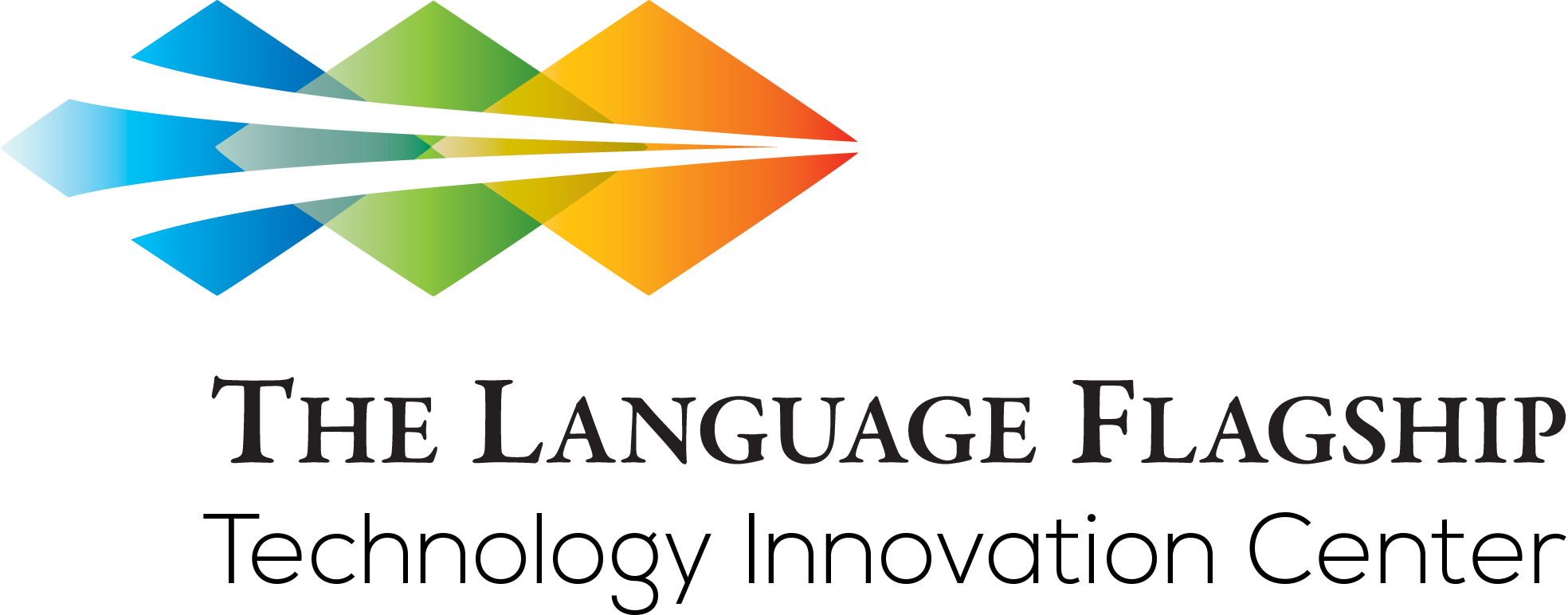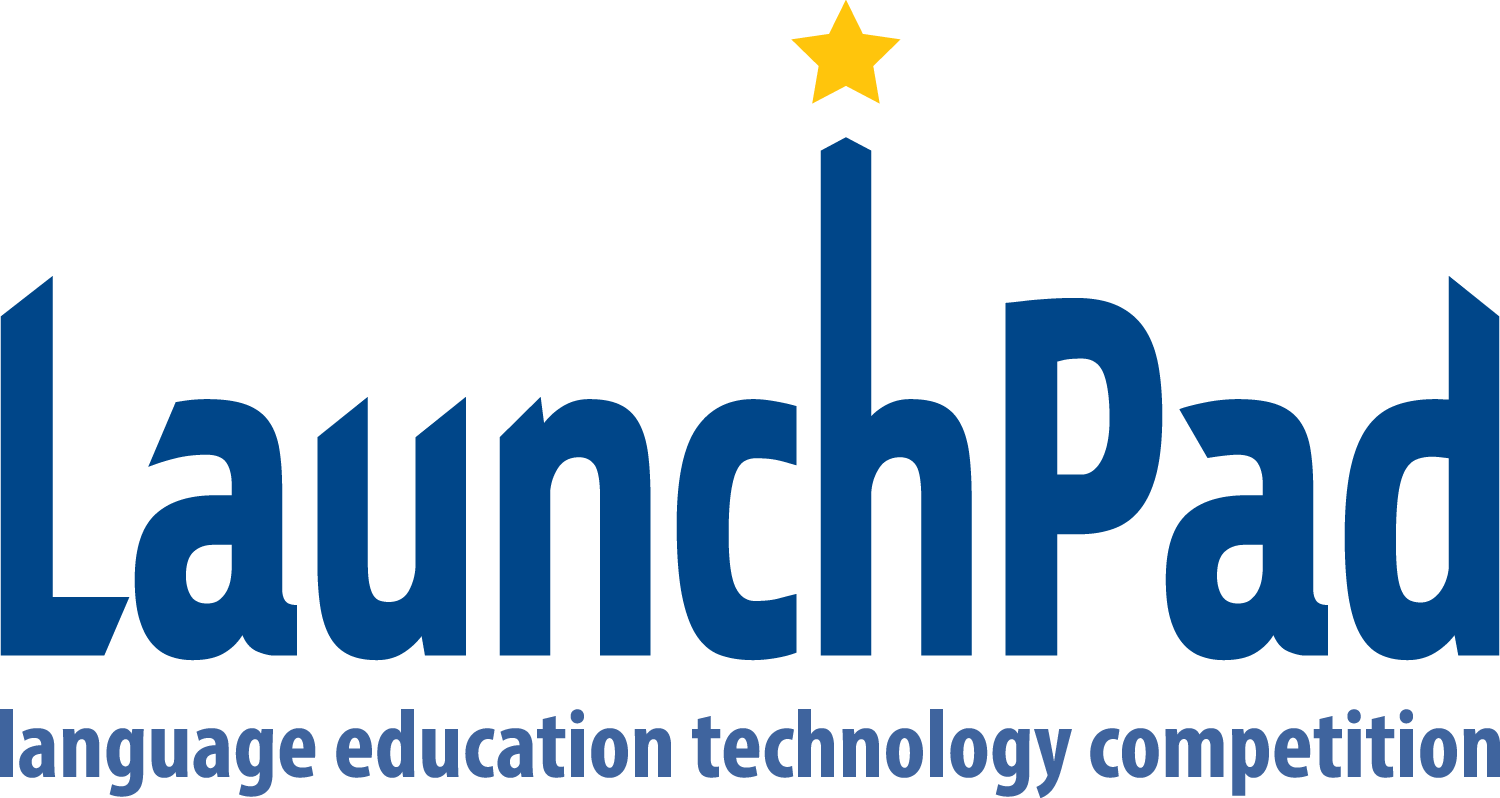Mage Duel
President and Founder: Deanna Terzian
Primary Audience: Government/Adult Ed., Translators
Mage Duel is a serious language learning game that builds receptive and productive language abilities using an innovative neural-network-based semantic similarity engine to accelerate players’ language fluency and improve their phonological, morphological, and semantic discrimination skills. Mage Duel exists to support military linguists and civilians seeking to master communicative competency in a new language and is a cradle to grave solution for vocabulary acquisition and translation competency to complement formal language study.
LaunchPad Questions
During the LaunchPad, the audience had an opportunity to ask questions about the products. The Tech Center shared those questions with the entrepreneurs and here are the responses.
Is there any kind of speaking in the game? Or is it merely translation-focused?
Current Arabic and Spanish versions of Mage Duel feature reading and listening activities, where players read or listen to text in the target language and translate the text into English. Some of these texts are taken from conversational and spoken registers.
How can students learn about the target cultures surrounding the language through the gameplay?
What's the added value compared to a classic video game? Many people have learned to speak English through games like WOW or CS:GO.
Mage Duel’s game world is built to match the content and learning activities of language learning curricula, and the primary object of Mage Duel is for players to gain language fluency through deliberate practice, learning to use a complex language for real life (and often, for the military, life or death) situations.
It seems that it targets a particular type of gamer. Is it possible it may not be fun for gamers that don’t like this type of game?
How do you make sure the vocabulary is wide enough for each learner's individual needs? Is the vocabulary mainly related to the game theme?
How does Mage Duel’s semantic similarity engine work?
Mage Duel’s semantic similarity engine represents language as vectors in a multi-dimensional meaning space. It’s like a set of coordinates but instead of having two dimensions like coordinates on a map, our meaning space features 512 dimensions to represent meaning. Using math applied to these vector embeddings, we can tell how close in the meaning space, and therefore meaning, the player’s translation is to the source phrase. We can do this without relying on the use of specific words in the player’s translation. We can evaluate if the player gets the meanings close, even without using previously-given translations for individual words.
Why do you focus on fluency and not proficiency?
Are there opportunities for learners to produce spoken output within the game?
Your pitch highlights integration. Can you say more about how the language tasks relate to the player’s quest?
To what extent does your game adapt to the language learning needs of individual players?
Are there specific aspects of the game that facilitate comprehensible input?
Is language learning based on translation?
What devices is Mage Duel available on?
How are the learning mechanics integrated with game mechanics?
Learning languages while playing Mage Duel emerges from the interaction of the player’s game play and the game mechanics. All parts of the Mage Duel game world are designed with pedagogical attention as to how real languages are learned and how real communication functions.
Is it all translation?
Do you like playing this game? How many hours would you say you spend on average in each session?
How would you measure intelligibility?
Does the learner have any choice in the content covered?
I see how this can give depth to the task at hand, but less clear about how it adds breadth (e.g., many different language tasks)?
Who wrote and designed the game narratives of the games?
You mentioned fantasy, so I wanted to know if there’s any violence, especially since you said children could use this.
Awesome presentation!! I was wondering if there are multiple languages available with your program? I love the video game concept.
Are you using fluency as a synonym of proficiency?
Contact Information
TECH CENTER
1890 East West Road
Moore Hall 256
Honolulu, HI 96822
tech.center@hawaii.edu
Follow Us
The Language Flagship Technology Innovation Center is funded under a grant from the Institute of International Education (IIE), acting as the administrative agent of the Defense Language and National Security Education Office (DLNSEO) for The Language Flagship. One should not assume endorsement by the Federal Government. Project P.I.: Dr. Julio C. Rodriguez



